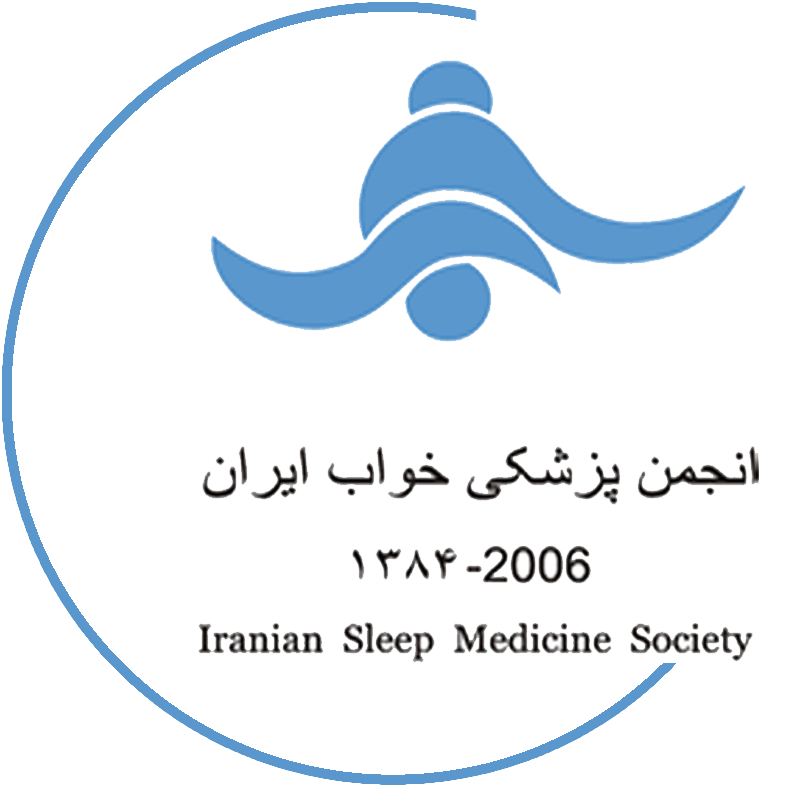Examining the Relationship between Sleep Quality and Academic Performance with the Degree of Dependence on Smartphone during the Coronavirus Pandemic
Abstract
Background and Objective: After the outbreak of the coronavirus disease 2019 (COVID-19) pandemic in Iran, to pre-vent the spread of coronavirus, it was decided for classes to be held virtually. Even though this decision reduced the spread of the virus, the students were exposed to smartphone addiction, which is believed to have high comorbidity with psychological problems. The current study aims to examine the relationship between sleep quality and academic per-formance with the degree of dependence on smartphone during the COVID-19 pandemic.
Materials and Methods: The current research was a cross-sectional study with 254 adolescent students participating in virtual classes. This study was conducted in 2020-2021. The participants filled out the following questionnaires online: Pittsburgh Sleep Quality Index (PSQI), smartphone addiction scale (SAS), and Educational Performance Test (EPT). The data were analyzed using SPSS software, descriptive statistics [frequency, pearson correlation, mean, standard deviation (SD)], and inferential statistics (simultaneous regression) (P < 0.05).
Results: There was a significant correlation between components of addiction to the Internet and the study’s variables. The results of correlation analysis showed that there was a significant correlation between Internet addiction and academic performance (Pearson correlation = -0.57, P = 0.01) and between Internet addiction and sleep quality (Pearson correlation = 0.47, P = 0.01).
Conclusion: According to the results, it can be concluded that after the COVID-19 pandemic and virtual education, Internet addiction could be a risk factor for decreasing sleep quality and academic performance in students.
2. Nakayama H, Matsuzaki T, Mihara S, et al. Change of internet use and bedtime among junior high school students after long-term school closure due to the coronavirus disease 2019 pandemic. Children (Basel) 2021; 8: 480.
3. De Pasquale C, Pistorio ML, Sciacca F, et al. Relationships between anxiety, perceived vulnerability to disease, and smartphone use during coronavirus dis-ease 2019 pandemic in a sample of Italian college students. Front Psychol 2021; 12: 692503.
4. Kim JH, Seo M, David P. Alleviating depression only to become problematic mobile phone users: Can face-to-face communication be the antidote? Comput Human Behav 2015; 51: 440-7.
5. King DL, Delfabbro PH, Billieux J, et al. Problematic online gaming and the COVID-19 pandemic. J Behav Addict 2020; 9: 184-6.
6. Sun Y, Li Y, Bao Y, et al. brief report: increased addictive internet and substance use behavior during the COVID-19 pandemic in China. Am J Addict 2020; 29: 268-70.
7. Zhang Y, Zhang H, Ma X, et al. Mental health problems during the COVID-19 pandemics and the mitigation effects of exercise: A longitudinal study of college students in China. Int J Environ Res Public Health 2020; 17.
8. Pieh C, Budimir S, Probst T. The effect of age, gender, income, work, and physical activity on mental health during coronavirus disease (COVID-19) lock-down in Austria. J Psychosom Res 2020; 136: 110186.
9. Lee PH, Marek J, Nalevka P. Sleep pattern in the US and 16 European countries during the COVID-19 out-break using crowdsourced smartphone data. Eur J Public Health 2021; 31: 23-30.
10. Krejcie RV, Morgan DW. Determining sample size for research activities. Educ Psychol Meas 1970; 30: 607-10.
11. Buysse DJ, Reynolds CF 3rd, Monk TH, et al. The Pittsburgh Sleep Quality Index: A new instrument for psychiatric practice and research. Psychiatry Res 1989; 28: 193-213.
12. Farrahi MJ, Nakhaee N, Sheibani V, et al. Reliability and validity of the Persian version of the Pittsburgh Sleep Quality Index (PSQI-P). Sleep Breath 2012; 16: 79-82.
13. Koo HY. Development of a cell phone addiction scale for Korean adolescents. J Korean Acad Nurs 2009; 39: 818-28. [In Korean].
14. Ghaffari M, Ahadi H. A consideration of emotional selfawareness and impulse control effect on decreas of social withdrawal and compulsion use of internet. Journal of Psychological Studies 2007; 3: 91-107. [In Persian].
15. Pham LB, Taylor SE. From thought to action: Effects of process-versus outcome-based mental simulations on performance. Pers Soc Psychol Bull 1999; 25: 250-60.
16. Rezaeian M, Seyyedrezaei SH, Barani G, et al. An investigation into Iranian Non-English PhD Students perceptions regarding learning as an educational con-sequence of EPT. Iranian Journal of Learning and Memory 2020; 3: 71-80.
17. Demirci K, Akgonul M, Akpinar A. Relationship of smartphone use severity with sleep quality, depression, and anxiety in university students. J Behav Addict 2015; 4: 85-92.
18. Kumar VA, Chandrasekaran V, Brahadeeswari H. Prevalence of smartphone addiction and its effects on sleep quality: A cross-sectional study among medical students. Ind Psychiatry J 2019; 28: 82-5.
19. Bhandari PM, Neupane D, Rijal S, et al. Sleep quality, internet addiction and depressive symptoms among undergraduate students in Nepal. BMC Psychiatry 2017; 17: 106.
20. Yam FC, Korkmaz O, Griffiths MD. The association between fear of Covid-19 and smartphone addiction among individuals: the mediating and moderating role of cyberchondria severity. Curr Psychol 2023; 42: 2377-90.
21. Diaz Caírdenas S, Arrieta Vergara K, Simancas-Pallares M. Internet addiction and academic performance in dental students. Revista Colombiana de Psiquiatría (English Edition) 2019; 48: 198-207.
22. Javaeed A, Jeelani R, Gulab S, et al. Relationship between internet addiction and academic performance of undergraduate medical students of Azad Kashmir. Pak J Med Sci 2020; 36: 229-33.
23. Kumar S, Kumar A, Badiyani B, et al. Relationship of internet addiction with depression and academic performance in Indian dental students. Clujul Med 2018; 91: 300-6.
| Files | ||
| Issue | Vol 7 No 1-2 (2022): Winter-Spring | |
| Section | Original Article(s) | |
| DOI | https://doi.org/10.18502/jss.v7i(1-2).13211 | |
| Keywords | ||
| Internet addiction disorder; Sleep quality; Academic performance | ||
| Rights and permissions | |

|
This work is licensed under a Creative Commons Attribution-NonCommercial 4.0 International License. |



